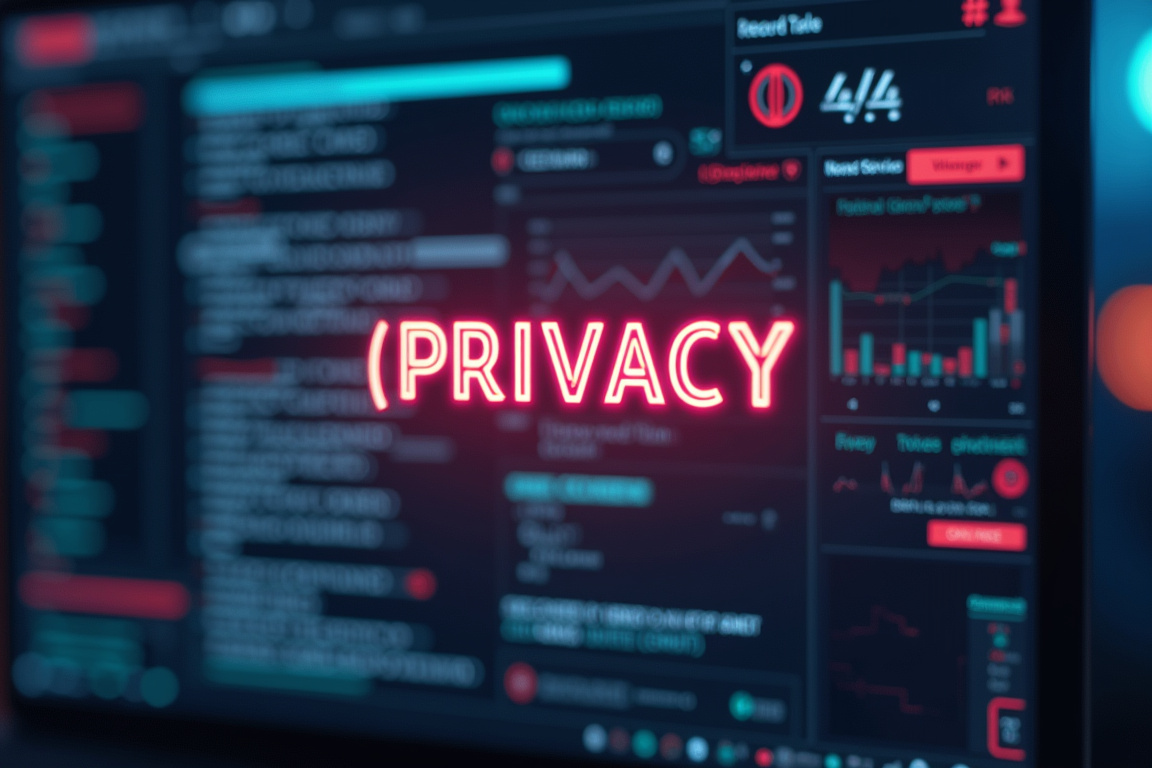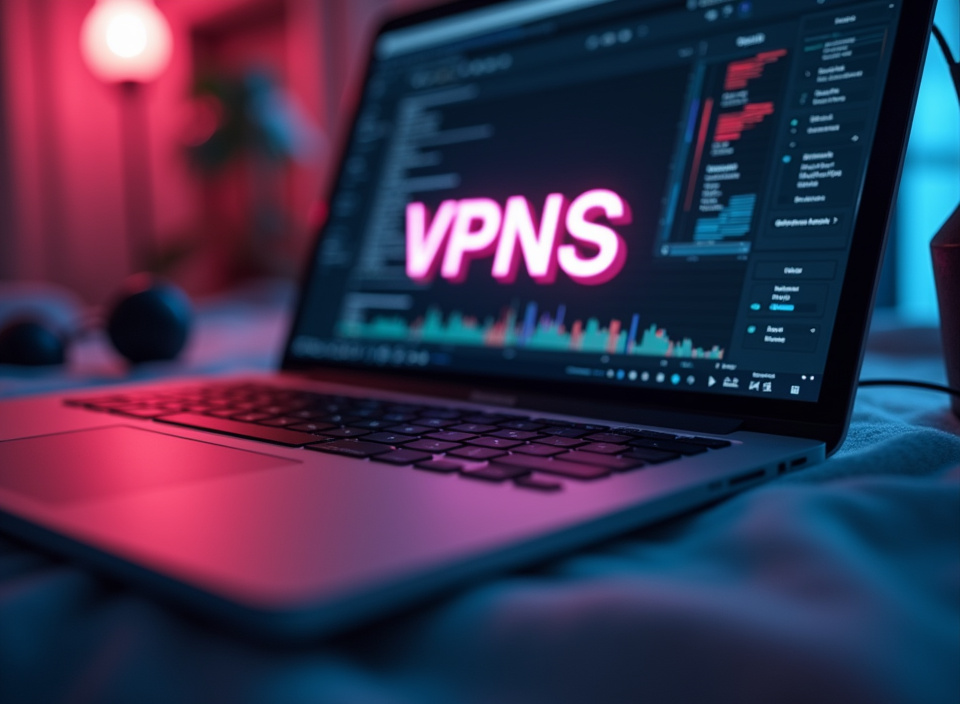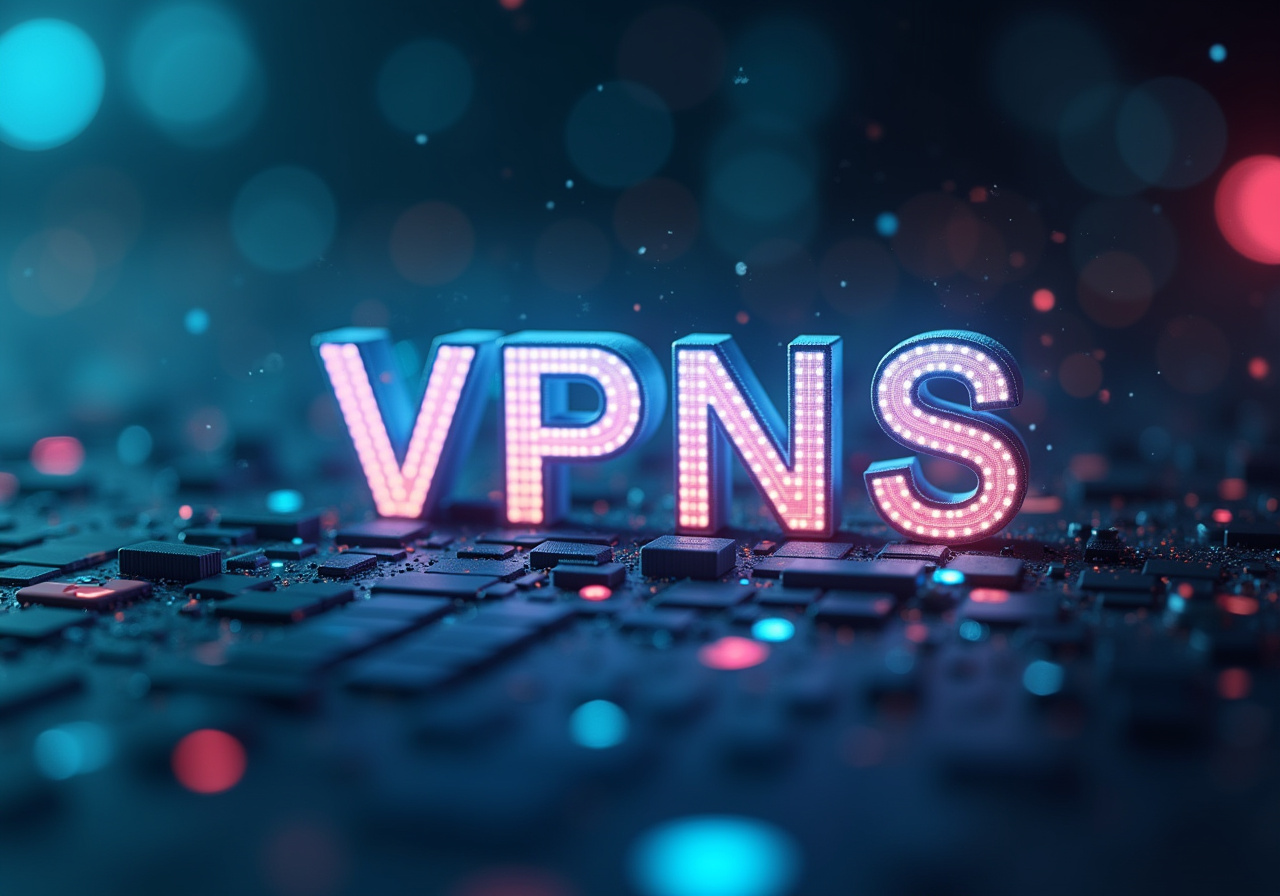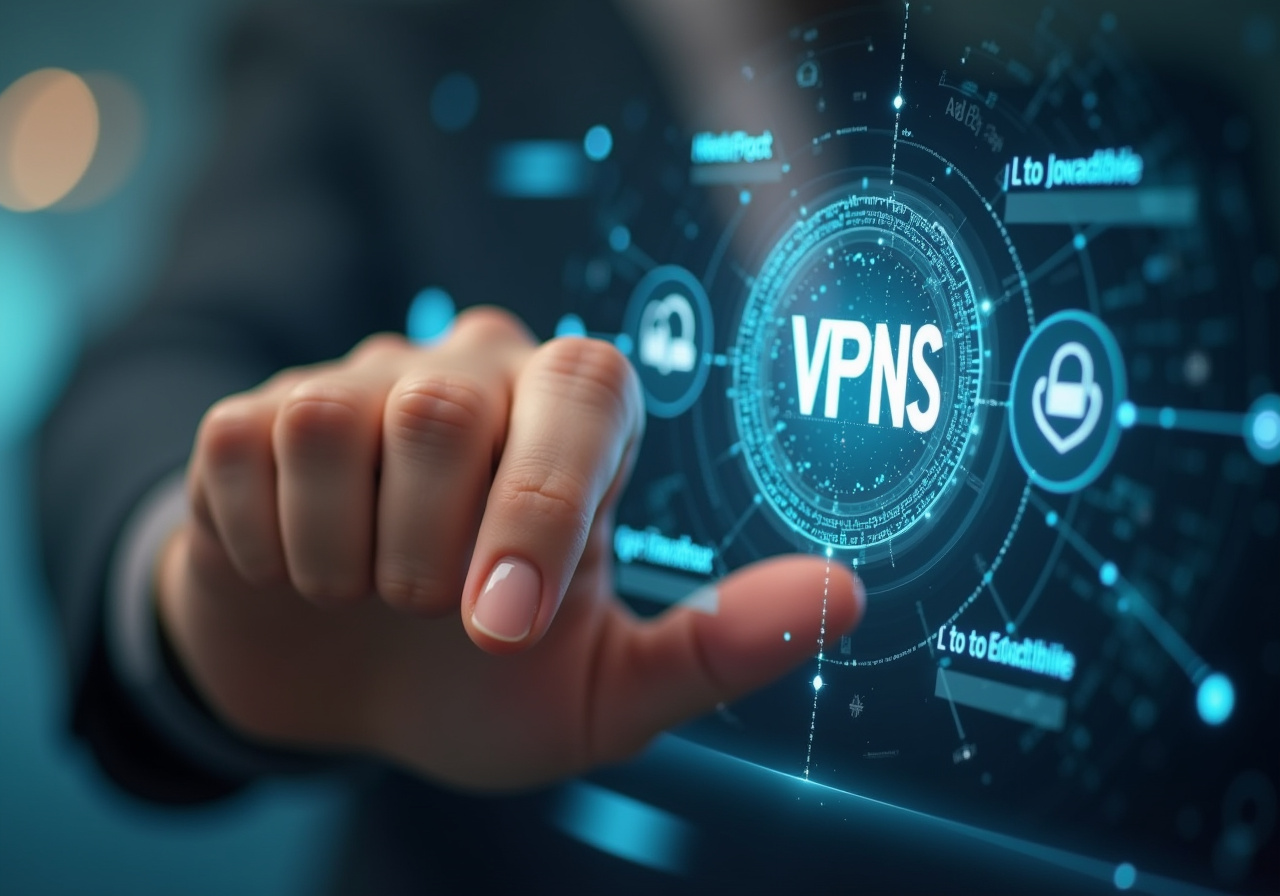VPNs for Online Entertainment Platforms: Securing User Experience
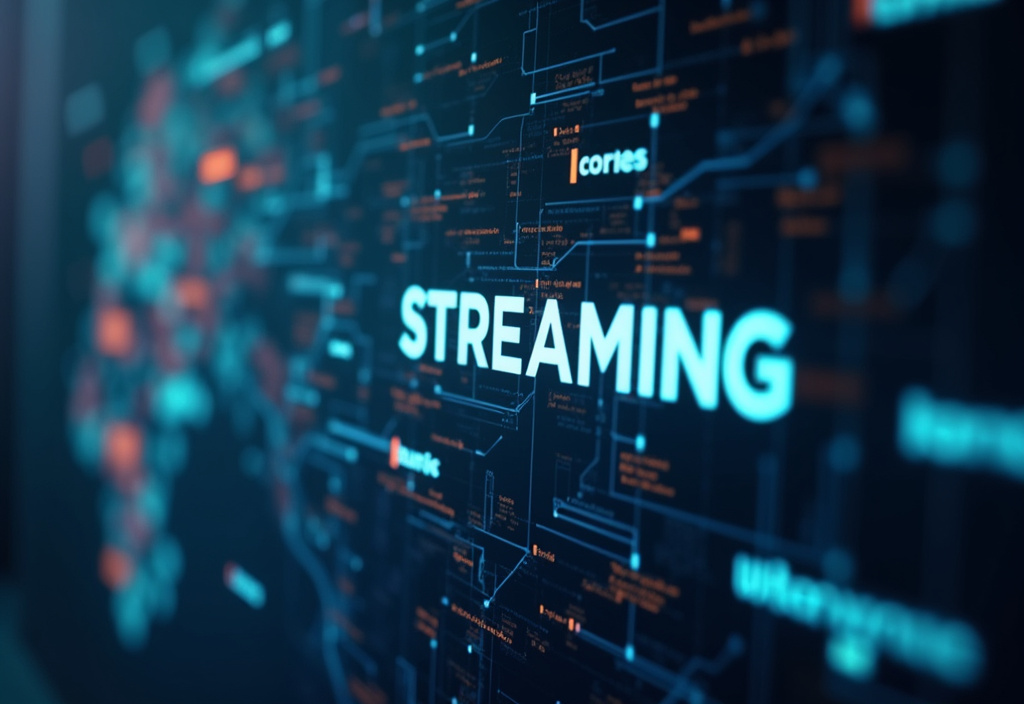
Table of Contents
Introduction to VPNs for Game Development
In an era where digital entertainment reigns supreme, the importance of safeguarding user experience and securing streaming data cannot be overstated. The proliferation of online platforms offering movies, TV shows, music, and more has ushered in unprecedented convenience and choice, yet simultaneously amplified concerns regarding privacy and data protection. This article delves into the realm of Virtual Private Networks (VPNs) as a pivotal solution, exploring how they bolster security and elevate user satisfaction within the online entertainment ecosystem.
A VPN, at its core, establishes a secure and encrypted conduit between a user's device and a remote server, effectively masking their IP address and scrambling their internet traffic. This dual action provides a formidable shield against various online threats and restrictions. Firstly, it ensures user privacy by preventing websites, Internet Service Providers (ISPs), and other third-party entities from monitoring online activities, browsing history, and streaming habits.
Secondly, it fortifies streaming data by rendering it unreadable to potential hackers or eavesdroppers attempting to intercept sensitive information like login credentials or payment details. Finally, a VPN empowers users to bypass geo-restrictions often imposed by streaming platforms, unlocking access to content that might otherwise be unavailable in their geographical location. This circumvention ability opens up a global library of entertainment, enhancing the viewing experience.
The concept of user experience security is no longer a mere add-on but a fundamental expectation in today's digital landscape. Users not only demand high-quality content but also the peace of mind that their personal data and viewing preferences are protected. Streaming platforms that prioritize robust security measures foster trust and cultivate a positive user experience, leading to increased user retention, higher engagement, and greater overall satisfaction.
By strategically integrating VPN technology, these platforms can offer a comprehensive solution that directly addresses these critical concerns. The benefits of VPNs extend far beyond individual users. Entertainment platforms themselves also stand to gain significantly by proactively promoting VPN usage among their subscribers.
By enhancing security and safeguarding user privacy, they can substantially reduce the risk of data breaches, cyberattacks, and other security incidents that can severely damage their reputation and erode user trust. Furthermore, they can elevate the overall user experience by enabling seamless and unrestricted access to content, irrespective of the user's location. This enhanced accessibility translates to increased user engagement, extended viewing sessions, and a more loyal customer base.
Understanding the intricacies of how VPNs contribute to enhanced privacy, robust security, and unrestricted accessibility is paramount for both consumers and content providers navigating the ever-evolving complexities of online entertainment. As the digital landscape continues to advance at an accelerated pace, the role of VPNs in securing user experience, protecting streaming data, and facilitating unfettered access to content will only become more critical and indispensable. Ignoring these aspects could result in a diminished user experience, increased vulnerability to cyber threats, and potential erosion of trust in the online entertainment platform.
Embracing VPN technology, therefore, is not simply an option but a strategic imperative for staying ahead in the competitive world of online streaming.
The core function of an entertainment VPN is to establish a secure, encrypted tunnel for all online activity, ensuring that data transmitted between the user's device and the internet is protected from unauthorized access and potential eavesdropping. This encryption process essentially scrambles the data, making it unreadable to anyone who might intercept it, be it an ISP, a government agency, or a cybercriminal lurking on a public Wi-Fi network. By masking the user's true IP address and replacing it with that of the VPN server, the VPN effectively conceals their location and identity, adding an extra layer of anonymity and privacy.
This is particularly crucial for users who are deeply concerned about their digital footprint and wish to maintain a high degree of privacy while engaging with online entertainment content. Streaming data protection is a fundamental aspect of online entertainment, given the considerable bandwidth consumed by streaming video and audio content. This constant flow of data presents a tempting target for malicious actors seeking to intercept and potentially manipulate it.
A VPN acts as a shield, encrypting this data stream and ensuring that it remains private and protected throughout its journey across the internet. This encryption is especially critical when users are connecting through public Wi-Fi hotspots, which are notoriously unsecured and vulnerable to eavesdropping attacks. By deploying a VPN, users can rest assured that their streaming data remains confidential and protected, even when using potentially risky public networks.
Privacy is a cornerstone benefit of utilizing a VPN for online entertainment consumption. Many streaming platforms gather user data to curate personalized recommendations, deliver targeted advertising, and meticulously track viewing habits for analytical purposes. While this data collection can undoubtedly enhance the user experience by tailoring content suggestions to individual preferences, it also raises legitimate concerns about privacy and the potential for data misuse or breaches.
A VPN helps to alleviate these concerns by limiting the platform's ability to track user activity based on their unique IP address. By masking their IP address and encrypting their internet traffic, users can significantly reduce the amount of personal data that platforms can collect and associate with their profiles. This empowers users to maintain greater control over their privacy and limit the extent to which their online activities are tracked and monitored.
VPN for media extends beyond mere security enhancements, offering a gateway to a wider world of content and entertainment options. Streaming platforms frequently impose geo-restrictions to comply with complex licensing agreements and copyright regulations. These restrictions effectively prevent users from accessing content that is not licensed for distribution in their specific geographic region.
A VPN provides a workaround for these limitations, enabling users to connect to servers in other countries and effectively spoof their location. This allows them to bypass geo-restrictions and access content that would otherwise be unavailable to them, unlocking a vast library of movies, TV shows, and other media from around the globe. This is particularly advantageous for users who travel frequently or who wish to access content that is not available in their home country due to licensing constraints.
The user experience security afforded by a VPN goes beyond simply safeguarding data from unauthorized access; it also encompasses ensuring a seamless and consistently high-quality streaming experience. In some instances, ISPs may intentionally throttle bandwidth for streaming services, leading to frustrating buffering issues and slow loading times that disrupt the viewing experience. By encrypting internet traffic, a VPN makes it considerably more challenging for ISPs to identify and throttle streaming activity.
This can result in a more stable and predictable connection, minimizing buffering and ensuring a smoother, more enjoyable streaming session.
Optimizing streaming data protection involves a multi-faceted approach that considers both the technical capabilities of the VPN service and the individual user's needs and preferences. First and foremost, users should prioritize selecting a VPN provider that offers robust encryption protocols, with AES-256 widely recognized as the gold standard in the industry. This advanced encryption algorithm ensures that all data transmitted between the user's device and the VPN server is virtually impenetrable, providing a high level of security against interception and decryption attempts.
Secondly, it is crucial to opt for a VPN service with a geographically expansive and diverse network of servers strategically located across the globe. A wide server network not only allows users to connect to servers in different regions to circumvent geo-restrictions and access region-locked content but also provides greater flexibility in optimizing streaming speeds and avoiding server congestion. The ability to switch between servers in different locations can be invaluable for maintaining a stable and reliable connection, especially during peak streaming hours.
Thirdly, users should seek out VPN services that offer specialized, high-performance streaming servers that are specifically optimized for handling the demanding bandwidth requirements of streaming video and audio content. These servers are typically equipped with advanced hardware and software configurations to ensure smooth, uninterrupted streaming experiences, even when dealing with high-definition or 4K content. Furthermore, some VPN services offer advanced features such as split tunneling, which allows users to selectively route certain traffic through the VPN while allowing other traffic to bypass it.
This can be particularly useful for optimizing performance and reducing latency, as users can choose to route only streaming traffic through the VPN while allowing other applications to connect directly to the internet. Privacy remains a paramount consideration when selecting a VPN for online entertainment purposes. Users should meticulously review the VPN service's privacy policy to ensure that it adheres to a strict no-logs policy, meaning that it does not collect or store any information about user browsing history, streaming activities, or other online habits.
A reputable VPN provider will be transparent about its data collection practices and committed to protecting user privacy. In addition to a no-logs policy, users should also consider the VPN provider's jurisdiction and its commitment to respecting user privacy. Choosing a VPN service that is based in a country with robust privacy laws, such as Switzerland or Panama, can provide an added layer of protection, as these countries have a strong track record of safeguarding user data and resisting government surveillance.
Beyond the legal framework, it is also important to look for VPN providers that have undergone independent audits to verify their no-logs claims and security practices. These audits provide third-party validation of the VPN's commitment to protecting user privacy and can help to build trust and confidence. Finally, users should be wary of free VPN services, as these services often rely on alternative revenue models, such as data mining or selling user information to third parties.
While free VPNs may seem tempting, they often come with significant privacy risks and may not provide the same level of security and performance as paid VPN services
Enhancing Security and Privacy for Subscription Services with VPNs
The practical application of an entertainment VPN extends beyond simply enabling access to geo-restricted content; it encompasses a range of scenarios that enhance the overall user experience. For instance, consider a frequent traveler who wishes to maintain access to their favorite streaming services while abroad. Due to licensing agreements, the content library available on these services often varies from country to country.
By utilizing a VPN, the traveler can connect to a server in their home country, effectively masking their true location and accessing the same content they would enjoy at home. This ensures a consistent and familiar entertainment experience, regardless of their geographical location. Moreover, a VPN can be instrumental in circumventing censorship and accessing blocked content in countries with restrictive internet policies.
In such situations, a VPN acts as a gateway to the open internet, allowing users to bypass government-imposed firewalls and access news, social media, and other online resources that would otherwise be unavailable. This is particularly crucial for individuals who rely on these platforms for information and communication, enabling them to stay informed and connected, even in heavily censored environments. Another compelling use case for an entertainment VPN is protecting against bandwidth throttling by ISPs.
Some ISPs intentionally slow down internet speeds for specific types of traffic, such as streaming video, particularly during peak hours. This practice, known as bandwidth throttling, can result in frustrating buffering issues and degraded video quality. By encrypting internet traffic, a VPN makes it more difficult for ISPs to identify and throttle streaming activity, potentially leading to improved streaming performance and a more enjoyable viewing experience.
From the perspective of the entertainment platform provider, encouraging VPN usage among subscribers can be a strategic move that enhances customer loyalty and reduces churn. By promoting the benefits of VPNs, such as increased security, enhanced privacy, and access to a wider range of content, platforms can position themselves as advocates for their users' online well-being. This can foster a sense of trust and strengthen the relationship between the platform and its subscribers.
Furthermore, by mitigating the risk of data breaches and cyberattacks, platforms can protect their own reputation and avoid costly legal and financial repercussions. A data breach can not only damage a platform's credibility but also expose sensitive user information, such as payment details and login credentials, potentially leading to identity theft and financial fraud. By investing in robust security measures, including promoting VPN usage among subscribers, platforms can demonstrate their commitment to protecting user data and maintaining a secure online environment.
The integration of VPN technology can also serve as a value-added feature that differentiates a platform from its competitors. In a crowded marketplace, where multiple streaming services are vying for the attention of consumers, offering enhanced security and privacy can be a compelling selling point. By partnering with reputable VPN providers or offering a built-in VPN service, platforms can attract privacy-conscious users and increase their market share.
Ultimately, the synergy between entertainment platforms and VPN technology creates a win-win scenario, where users benefit from increased security, privacy, and access to content, while platforms benefit from enhanced customer loyalty, a stronger reputation, and a competitive edge in the market
The Future of VPNs in Securing Subscription Services
In conclusion, the convergence of online entertainment platforms and Virtual Private Networks (VPNs) represents a significant evolution in how users consume and protect their digital experiences. The need for user experience security and streaming data protection has never been more critical, given the increasing sophistication of cyber threats and the growing concerns surrounding online privacy. By establishing a secure, encrypted connection, VPNs offer a comprehensive solution that addresses these challenges head-on, empowering users to enjoy their favorite content with greater peace of mind.
The benefits extend beyond individual users, as entertainment platforms themselves stand to gain from promoting VPN usage among their subscribers. By enhancing security, safeguarding privacy, and enabling seamless access to content, platforms can foster trust, strengthen customer loyalty, and differentiate themselves in a competitive market. The strategic integration of VPN technology can serve as a powerful tool for mitigating the risk of data breaches, protecting user data, and maintaining a secure online environment.
Looking ahead, the role of VPNs in the online entertainment landscape is poised to expand even further. As streaming services continue to proliferate and users become increasingly aware of the importance of online security and privacy, the demand for VPNs is likely to grow. This will drive innovation in the VPN industry, leading to the development of more advanced features, improved performance, and enhanced security protocols.
Entertainment platforms that embrace VPN technology and actively promote its benefits to their subscribers will be well-positioned to thrive in this evolving digital landscape By prioritizing user experience security and streaming data protection, these
Stay Updated
Get the latest VPN news, tips, and exclusive deals to your inbox.

